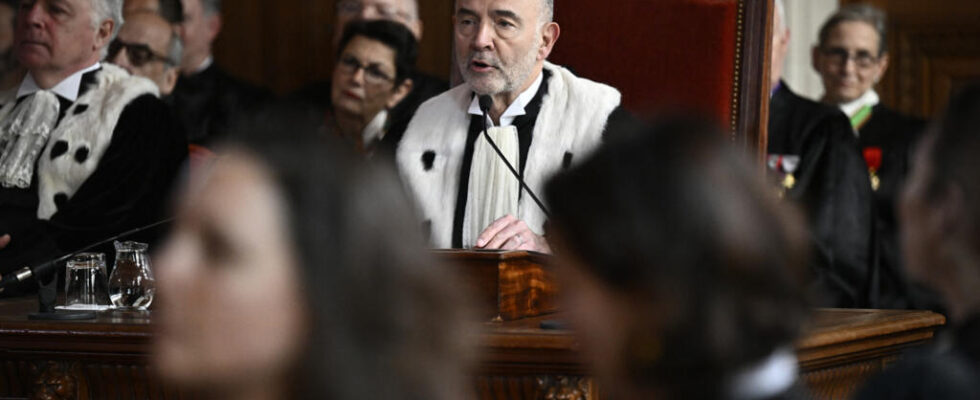As the country struggles to emerge from the political impasse, the Court of Auditors painted an unflattering picture of public finances for the outgoing government on Monday, July 15. The government had set itself the goal of returning to below the 3% deficit mark by 2027, and called on the next government to ” whatever ” to reduce debt.
3 min
” The year 2023 was a very bad year in terms of public finances. (…) While the economic situation has returned to normal and inflation has subsided, France now finds itself in a worrying situation.. » From the first lines, the Court of Auditors report takes on the appearance of an indictment. The France has nevertheless repeatedly committed to returning below the 3% deficit mark by 2027, but the Court denounces a trajectory ” unambitious ” and which raises ” a question of credibility ” In other words: the financial magistrates are not convinced.
The cause is the growth forecasts ” too optimistic » of the government of Gabriel Attal but also savings greater than what has been announced so far and mysterious tax revenues. We have a public debt of 3,100 billion euros, it will probably be 3,600 billion euros in 2027, we already pay 52 billion each year to repay it, we will pay 80 billion in 2027 ” he was alarmed Pierre Moscovici, first president of the Court of Auditors Monday morning on France Inter.
” This report only confirms what I have been saying insistently since 2022 and what I have been doing since the end of 2023. “, defended himself, Monday July 15, Bruno Le Maire, Minister of Economy and Finance for seven years. The head of Bercy recalls that it has committed to savings of 25 billion euros ” against all opposition ” And ” in great solitude “, suggesting that he may not have received the support from the presidential camp that he had hoped for.
Integrating the impact of global warming
While the Court’s report suggests that tax increases will be inevitable in the future, Bruno Le Maire denounces ” an accounting vision that does not correspond to economic reality » : « We proved in 2017 with corporate tax that when you lower the rate of a tax, it can bring in more because it creates growth. »
The fact remains that France is lagging behind its European neighbours in terms of debt reduction. When Bruno Le Maire takes part in his 91st and final Eurogroup (monthly meeting of Eurozone finance ministers) on Monday 15 July, Brussels will formally open a procedure for excessive deficit against seven European countriesincluding France. Life is an eternal recommencement “, sighs the Minister of the Economy who had taken France out of the process in 2018.
The political impasse into which France seems to be sinking since the dissolution and early legislative elections not having allowed a clear majority to be produced is also a source of concern for the Court of Auditors. Whoever governs France tomorrow, the next government will have to reduce our debt. “, hammered Pierre Moscovici on France Inter.
The former socialist Minister of the Economy assures that the question of public finances is “not neither right nor left “The Court therefore calls for better integration of the impact of the energy transition into public finance programming: ” Climate inaction, leading to uncontrolled warming, would result in very high costs. »
Read alsoFrance: Olympics expected to cost between 3 and 5 billion euros of public money
